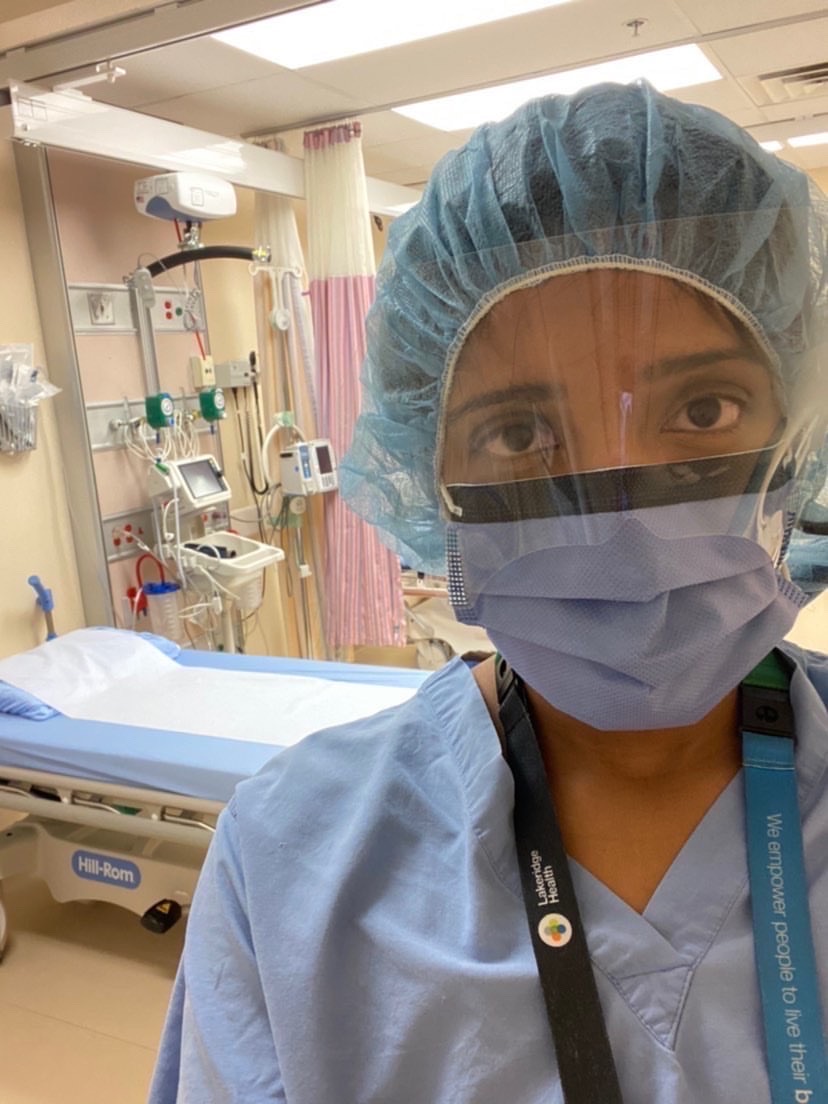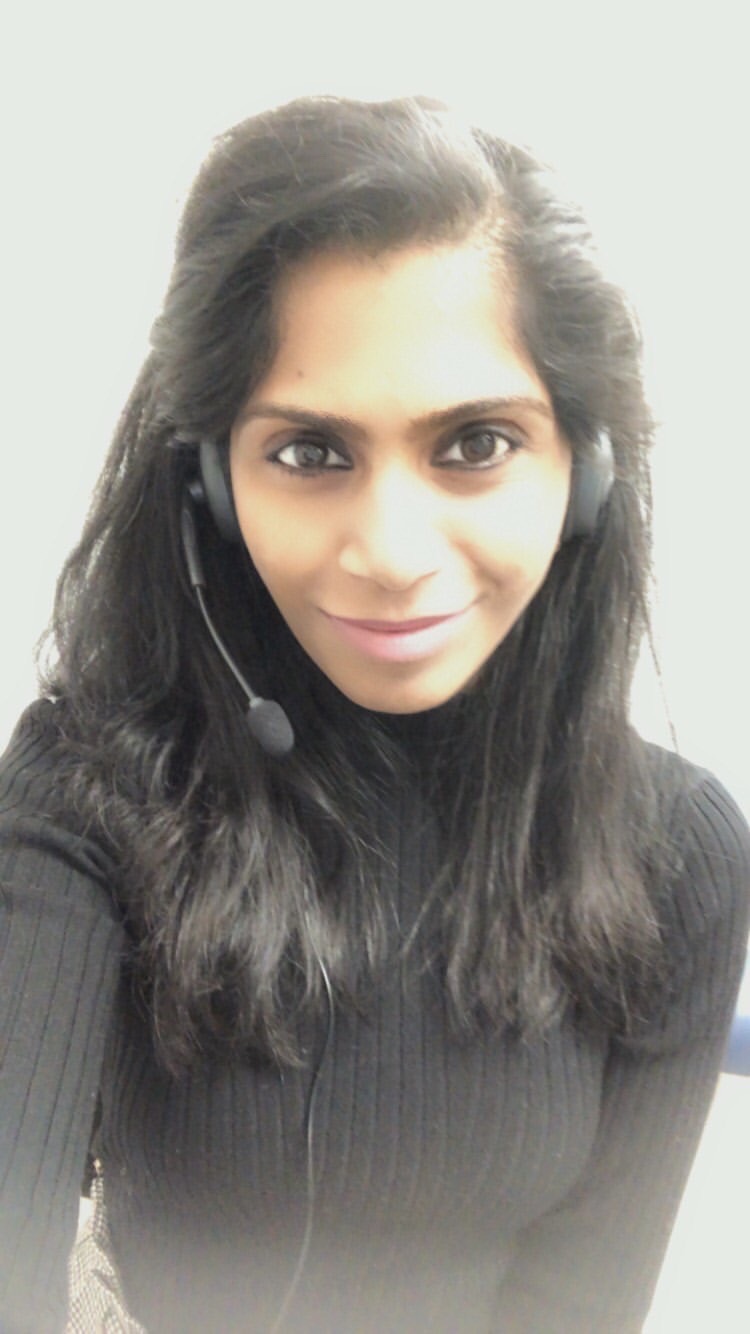With hundreds of deaths from coronavirus across Canada so far, we look at some of the Tamils healthcare workers the frontlines of the battle to save lives.
From nurses and doctors to our paramedics and porters, every single contribution is invaluable. And alongside thousands of other workers, the Tamil community has been actively involved in efforts to fight the pandemic.
Throughout this month we will update the page to bring you testimonies from those on the frontline.
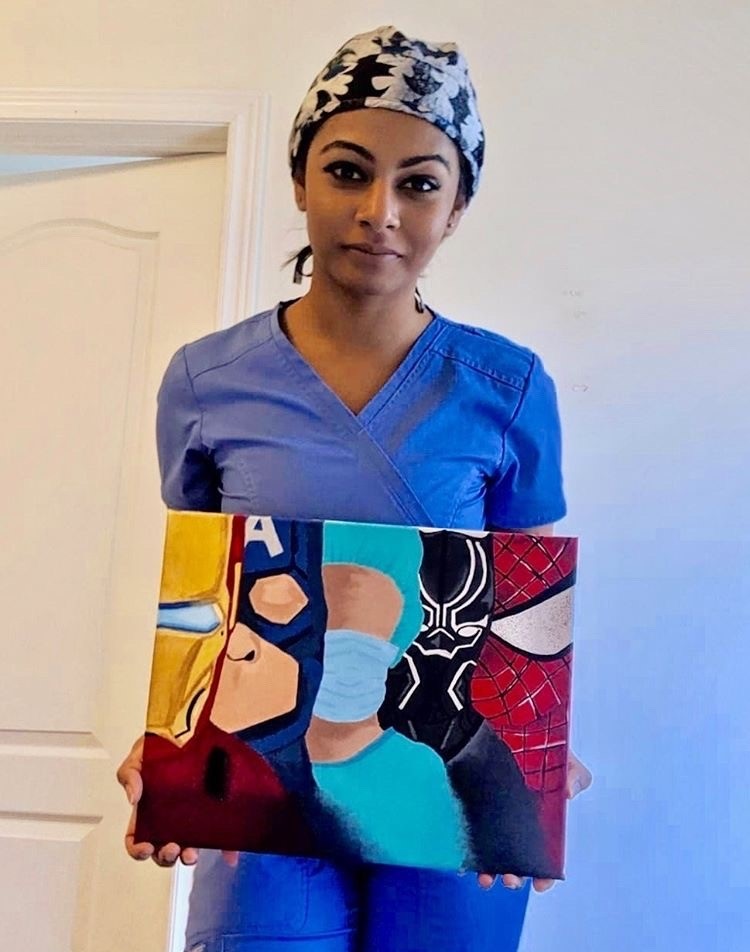
Jannakki Navaratnam, Registered Nurse, Toronto
"Not all superheros wear capes" - a motivation for our frontline workers, EVS, health care professionals and all other essential workers who are out there risking their lives day in and day out. I wish we had the superpower to be invincible and get rid of this horrible virus. But just like every other human, we are vulnerable. We wake up every morning not knowing what the day will hold, who's life we are saving or who's life was lost to the battle. But that's what we do as nurses. We keep our heads up high to give strength to those who need it and we put a smile on our faces, masking the fear that doesn't leave the pits of our stomachs.
As Canadians we have been lucky enough to have had time to prepare for this pandemic. We have been able to allocate extra ICU beds for the sick, we have been able to preserve as much PPE as possible to prepare for the worst. We have had time to clear out our units to make room for patients with COVID 19. Our hospital is giving extra training to nurses
I have been asked to work in the ICU where most, if not all, patients are positive for COVID. It's not an easy decision to make, but we must stick together and support each other during these times. Many lessons will be learnt from this new chapter, but I hope this pandemic has shown people the necessities of life and what not to take for granted.
Let's save the world one day at a time.
Stay home. Stay safe.
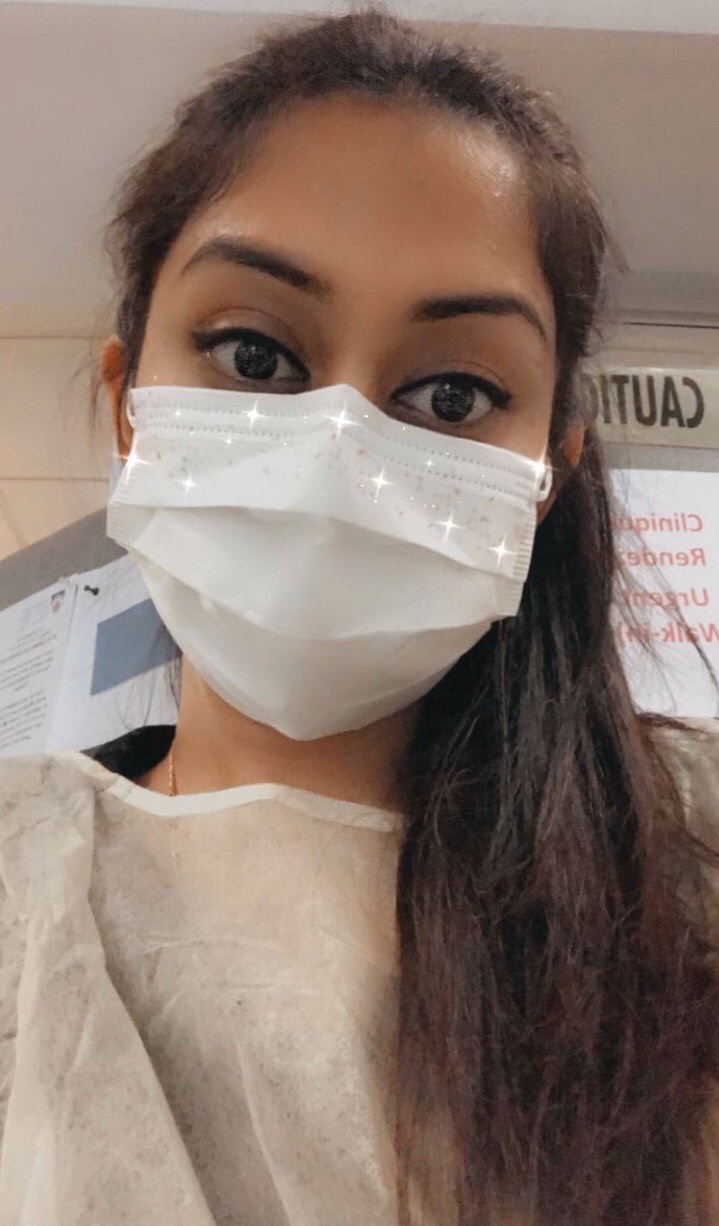
MornaLisa Sinnathurai, Registered Nurse, Montreal
I’m a Registered Nurse Clinician working at two departments, the birthing centre delivering babies, and front line at an emergency walk-in. It’s been tough, especially at the walk-in, because we have to take safety precautions and proper screening in filtering out who need to be seen at the walk-in immediately, and less urgent cases who don’t need to be seen during this pandemic. It truly will be helpful to control the spread of COVID-19 if people respect the requests to socially distance themselves and stay home, if they really don’t need to see a healthcare professional. If they are worried about their symptoms, then best to call the COVID helpline or 811, before presenting themselves in person. As much as we’re trying to prevent the spread to people around us, we really don’t want to infect newborns.
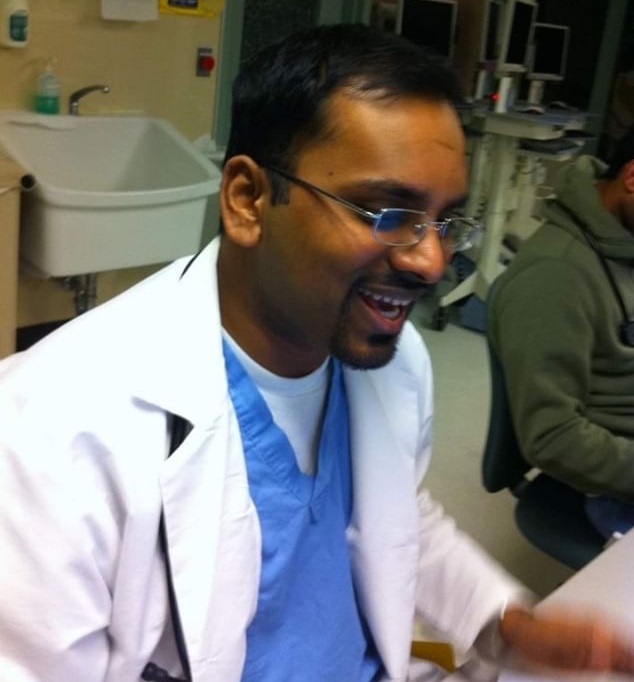
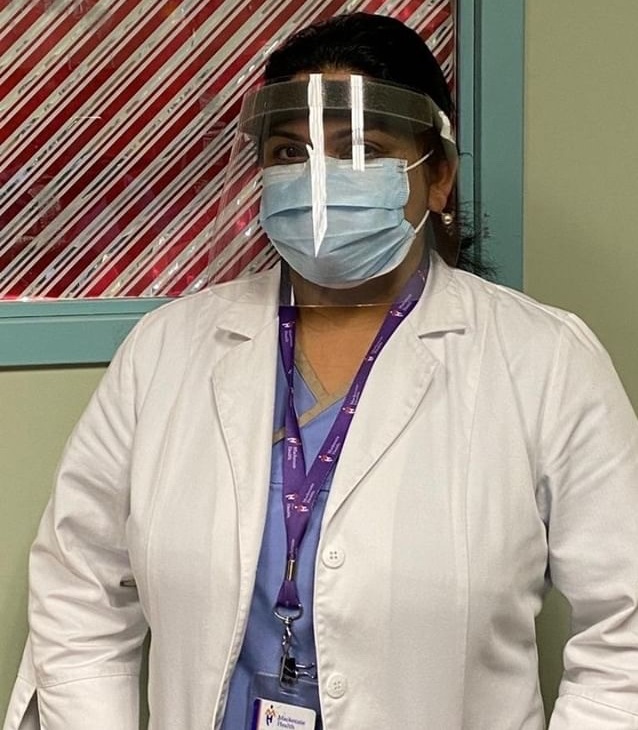
Selvabarath Muralitharan & Surabiga Nadarajah, Doctors, Ontario
The husband and wife team are both doctors, with Dr Muralitharan a physician working at both Richmond Hill and Hamilton Hospital in Ontario, and Dr Nadarajah is a neurologist working at Mackenzie Health.
“We have a beautiful daughter and son, who we come home to after work. We have been staying strong during this pandemic and are asking everyone to be safe and cautious during this time. We are lucky to have wonderful grandparents at home to look after their children, which gives us a bit of space to work. We want to ask everyone to be considerate of frontline workers and to stay at home.”
Sahaana Rangarajan, Doctor, Toronto
Working in the emergency department during this pandemic has definitely been a challenge to say the least. In addition to the surge of very sick COVID-19 patients requiring inpatient care, we still need to manage all other emergencies which we encounter on a day to day basis as well. I am lucky to work with an amazing team of healthcare professionals who are all extremely motivated and dedicated to patient care despite the increased risks and personal safety concerns. We are struggling with a PPE (personal protective equipment) shortage which is concerning however we have been creative in coming up with solutions to preserve and recycle the equipment which is keeping us safe while working on the frontlines. We are grateful that everyone is doing their best to social distance and stay at home while we try our best to help those who’ve been affected.
Durgaa Rajendran, Doctor, Toronto
As a result of the COVID-19 crisis, many clinics (including our own) have restructured and are now providing care via TeleMedicine. Although I am not at the front line per se, our role as family physicians is to help patients stay away from the Emergency Room as much as possible for two reasons: to decrease patients’ exposure of contracting COVID-19 and other diseases, and to help relieve the stress on our healthcare system. We do this by helping patients with recent travel and/or infectious symptoms and determining whether they can be monitored at home, require COVID-19 testing or need to seek urgent care. We also continue to provide care for our own patients, including chronic disease management.
Please be socially responsible and stay home. It may be boring and isolating, but your choice to stay home will help prevent spread. Help your fellow frontline heroes fight this war! We can do this!
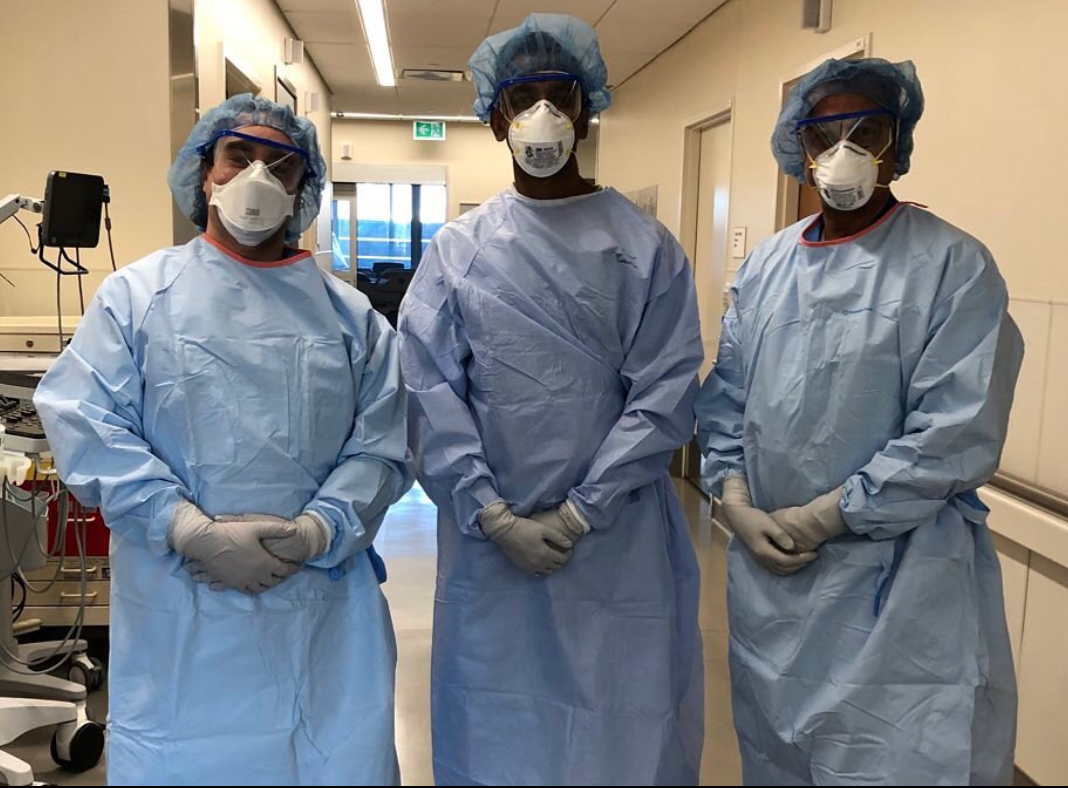
Shankar Sivananthan, Doctor, Toronto
“Being in Toronto, we’ve had our eye on COVID-19 since the end of January. The first week of March as we saw the tragedy unfold in Italy, we began serious pandemic planning. This involved increasing staffing and having backup in case health care workers got sick, opening up new spaces in the hospital to look after people on life support, and obtaining more ventilators.”
“For the last week we’ve been waiting for what we hope will never come but all know will be inevitable. The sick people. The ones that can’t breathe. The ones that may die. We will look after them, try our best to help them get better, but understand not all of them will. At the same time we will need to look after ourselves and our families and try to mitigate the exposure risk we face on a daily basis. At the end of it, which will be months away, we know we’ll come out in a different world, and can only hope the losses on the way are minimal.”
“My message to anyone who will listen is stay home, don’t get exposed or expose others, and make sure to stay connected to the ones you love. It’s the only way we’ll get through this.”
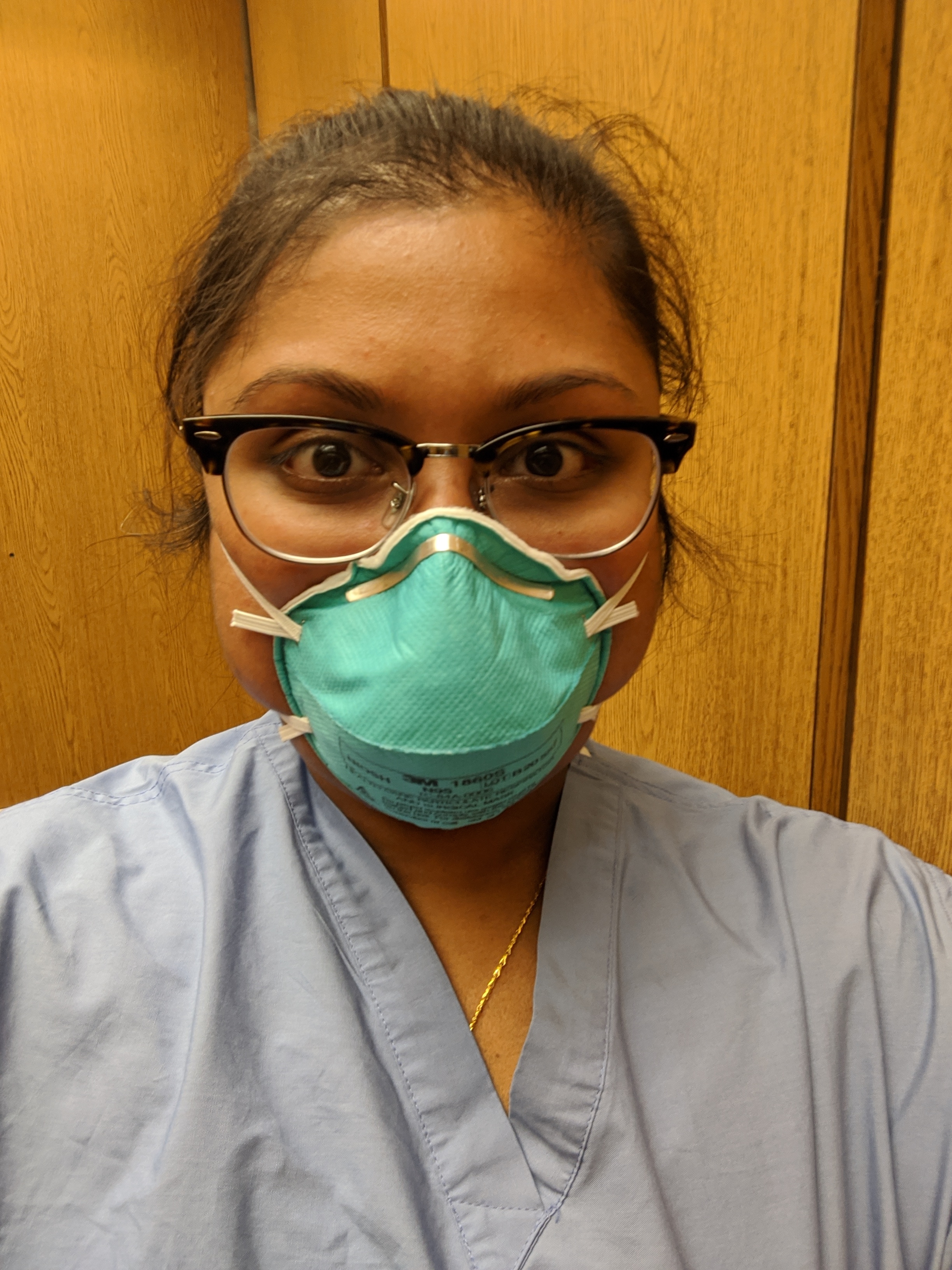
Gaya Naganathan, Surgeon, Ontario
As a General Surgery Resident in the age of COVID19, I know that I have been protected in many ways. As my colleagues in Critical Care, Emergency Medicine, and Family Medicine are seeing a surge in the acuity of their work, surgical specialties are winding down, minimising or even outright cancelling elective operations for exclusively emergency cases. Over the last few weeks, I've seen so many rapid changes not only in the messaging in the media but also within medical societies as we learn more about this virus and how we can best protect ourselves and our patients from it. Here are some quick thoughts and observations:
- Too many people, especially young people, think that they are impervious to this virus. This makes me sad as much as it does angry. We all have a duty to protect the most vulnerable people in our society and we must take this duty to heart.
- Our health care systems in Canada are already working overtime. ICU beds are a precious and protected commodity. We cannot afford to let the system become overwhelmed.#FlattenTheCurve.
- Our communities are generous and innovative in ways I could never have imagined. In the last few weeks I've seen distilleries turn to manufacturing hand sanitizers, and fashion designers sewing masks and gowns in an effort to protect our frontline workers. I've also seen friends and family reach out through virtual means to break through the social isolation while still maintaining physical distancing. These efforts make my heart smile and give me a great deal of hope in these difficult times.
- Our healthcare leaders are working through new and complex problems that have been created through the pandemic. How does trauma surgery operate in the age of COVID19? Very carefully and systematically. Especially during lockdowns as people are forced to remain indoors our trauma cases are shifting from motor vehicle collisions to suicide attempts and domestic violence.
- I am ever in awe of our ability, as a species, to adapt and persevere despite the challenges in front of us. I hope that we continue to keep our communities in mind as we move through the next phases of this pandemic
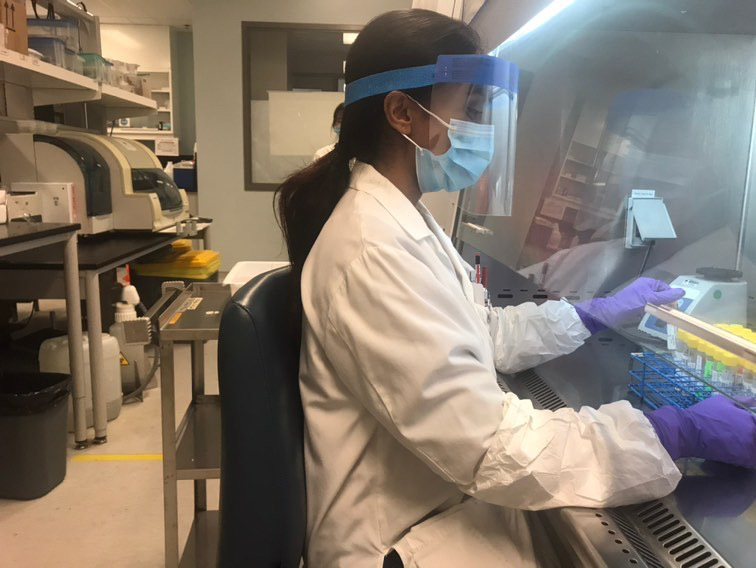
Apiramy Sivasambu, Medical Technologist, Montreal
"I’d like to highlight medical technologists because without us, doctors are just guessing. Medical technologists are the professionals who test the COVID-19 samples and report the results to the physicians.
We are often the unsung heroes of the healthcare system. Often forgotten and never thanked for our services during this pandemic."
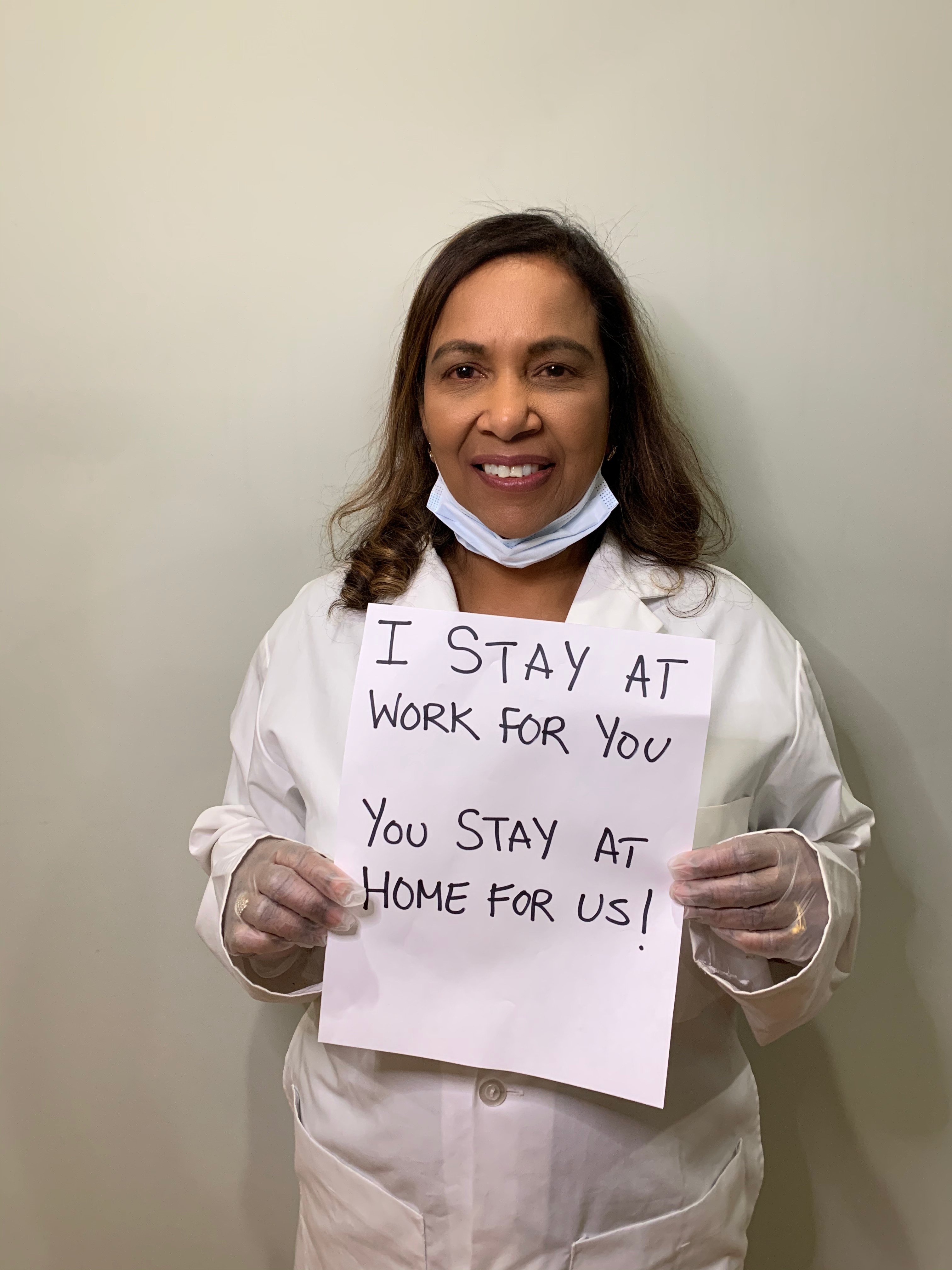
Rajeswary Logan, Doctor, Markham
"It was just two days ago I was talking to one my patients virtually, a middle-aged man in his 50s, who was seemingly fine; only to find out today that he’s been admitted to the hospital and currently on a ventilator. There are many people who still don’t take this seriously, but let me tell you: it is.
I often get worried about my 88-year-old mother who is healthy, but lives with me. I never once thought about retreating from the fight, but I can’t be sick either. That’s why before I step foot in my house, I change out my clothes in the garage, place them in a plastic bag, put a load in the laundry, wipe down my phone and keys, and then head up to shower. There is just so much uncertainty that you cannot take the risk. Young, old, healthy, rich, poor – no one is immune.
However, despite all the uncertainty that comes along with Covid-19, I try to maintain faith. I remind myself that I am blessed to have a government that is allocating the necessary resources to help our citizens during these difficult times, an equitable healthcare system, and some of the bravest frontline workers in the world that continues to inspire me every single day.
So if there is one message I can say it is to heed the science and advice from your doctor, public health experts, and government officials. We all have a responsibility, and this only works when we all play own part in this. Stay home, stay safe. The best way you can keep your loved ones safe is by doing just this. And lastly, physically distancing shouldn’t stop us from human connection. I think it’s more critical than ever that kindness and solidarity becomes more infectious than the virus itself."
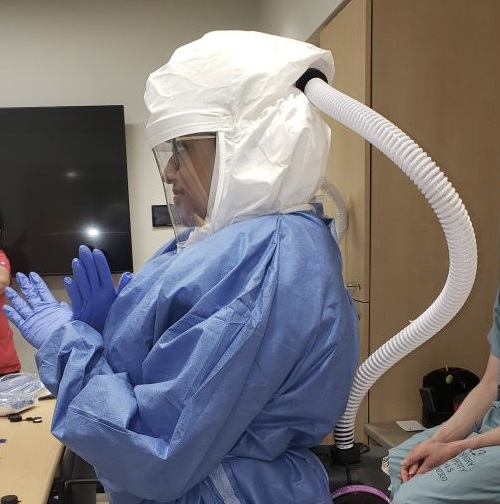
Vimoshana Vijayakumar, Respiratory Therapist, London
“We are at 28 positive cases in London with about 6 at my hospital requiring ventilator support. It truly has been an overwhelming time for health care workers and respiratory therapists in particular. RTs are called to every patient that comes through the doors that experience difficulties breathing. We manage the ventilators that these patients are requiring to support their breathing. Our patient loads have increased and the shortage of personal protective equipment (PPE) makes it difficult to feel safe while doing the job we love to do!
A lot of the patients I have seen have been immune-compromised or have multiple co-morbidities. However, we are beginning to see patients that are otherwise healthy requiring more support than we would normally see. That being said, these scary times have brought out some amazing qualities in people with overwhelming positive messages, donations or PPE and community support. It truly makes us feel supported!
What I can ask of everyone is to take this seriously and practice physical distancing, and proper hand hygiene. It is truly the only way we will flatten the curve! Share positivity, send love to your loved ones and we will definitely get through this!"

